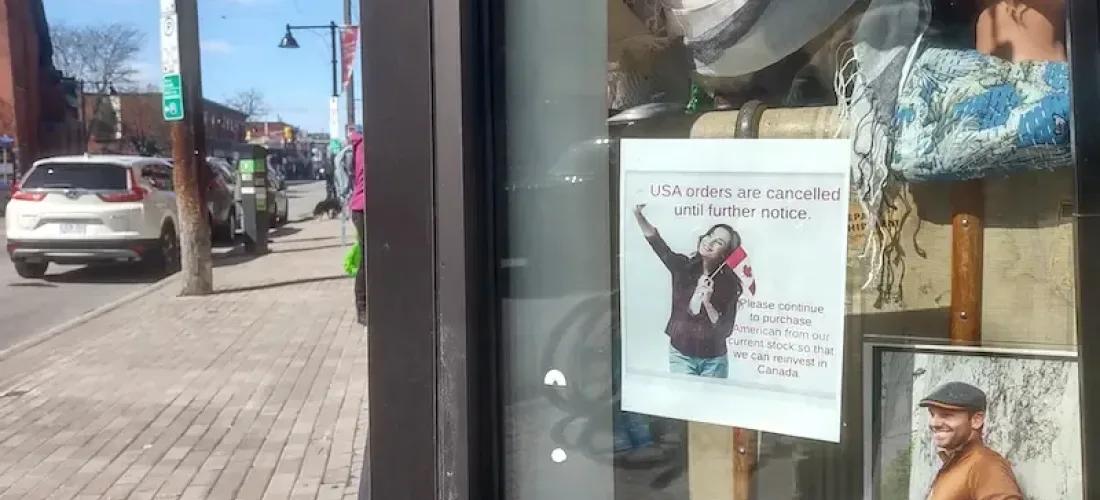
Source: The Energy Mix
By: Chris Bonasia
Main streets and small businesses across Canada are anticipating financial hardship as the country responds to new trade policies from the United States. With Donald Trump’s tariffs expected to drive up costs and squeeze local retailers, a new tool is tracking the effects on main street economies.
The strain of the international trade dispute is evident along Ottawa’s Bank Street, where local shops and services are holding their ground. Stores selling food and other goods have been highlighting Canadian-made products since the Trump administration first threatened tariffs in January. A local haberdashery has even taped a sign to its front window declaring, “USA orders are cancelled until further notice.”
The trade-strangling measures on both sides of the border are expected to hit small businesses hard, with devastating impacts for some.
“We will struggle enough that it’s not likely we would survive longer than a few months” if one of Canada’s proposed tariffs—a 25% charge on books—goes through, Lisa Greaves, owner of local independent bookstore Octopus Books, told The Energy Mix.
The extra costs imposed along the supply chain will reshape how small businesses balance their profits and selling prices for U.S. products. For books, Greaves explained that some larger publishers have said they will absorb the tariffs to reduce the strain on small sellers, but they won’t be able to do that forever. With those costs eventually passed on, Octopus would get to keep less than 10% of the selling price per book—“certainly not enough to pay rent, utilities, and property tax, let alone staff” plus other expenses.
Mayors on both sides of the border have called for a stop to the tariffs, citing the mutual harm on communities, reports The Globe and Mail.
As pressures rise on local communities, a new tool from Main Street Canada—a Canadian Urban Institute (CUI) project to understand and support local economies—tracks how the “large-scale changes on the world stage” affect the “main streets, businesses, and neighbourhoods that feel the immediate consequences.”
The Tariff Impact Tracker assesses social and economic indicators like employment, business activity, consumer spending, and investment across 50 regions in Canada. Communities can use it to monitor changes in these indicators with an aim to leveraging the opportunities that CUI says lie in every crisis.
“This moment is a wake-up call for reimagining local economies to make them more resilient to global forces,” it states.
CUI says consumers and local governments can take action to support small businesses. Buying products that are “local”—or at least Canadian—is a first step, but the concept needs to go further to ensure that “spending circulates within local economies” by also buying from within the community.
“The ripple effect of shopping on main street is far greater than ordering from chain stores or online retailers,” CUI writes.
But a commitment to shop locally can only go so far with costs rising across the board. Consumers will naturally prioritize essential items when affordability is at stake, and that will affect businesses like Octopus Books.
“I would not ask or expect someone to choose between rent, food, or clothing, and a book—it’s very clear that there is no choice,” said Greaves, anticipating the financial decisions many consumers may soon face.